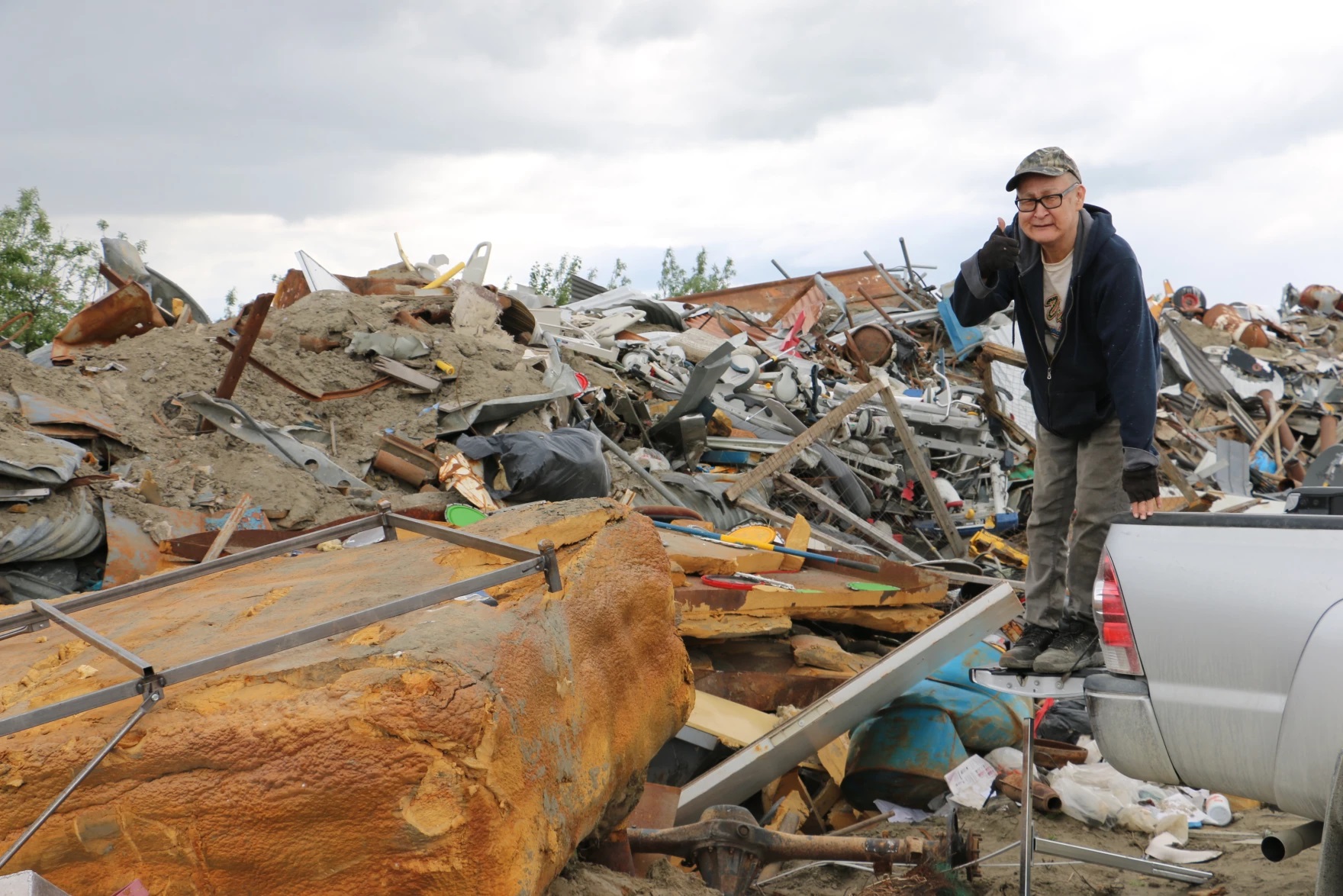
The cost of living in Bethel is estimated to be nearly one and a half times the national average. Many things readily available on the road system are either overpriced or weeks away by mail.
But the community is also a revolving door of people and projects that leave plenty of valuable things behind. And on any given Saturday at the Bethel landfill, people are making ends meet by bringing back the dead and discarded.
Arthur Peterson navigates a gray station wagon around the dusty lane that traces a diamond around the heaping mass of trash.
“The Walmart of Bethel they call it, ‘cause you can find anything and everything here,” Peterson said.
Peterson doesn’t get far before he pops out of the car to rummage through a pile of tangled metal.
“Nice and sharp yet, this guy,” Peterson said.
Peterson is here with his wife, Olinka. The pair have been coming to the landfill every Saturday to build up their fish camp across the river from Bethel.
“We got our smokehouse built mostly, and our dry rack,” Peterson said.
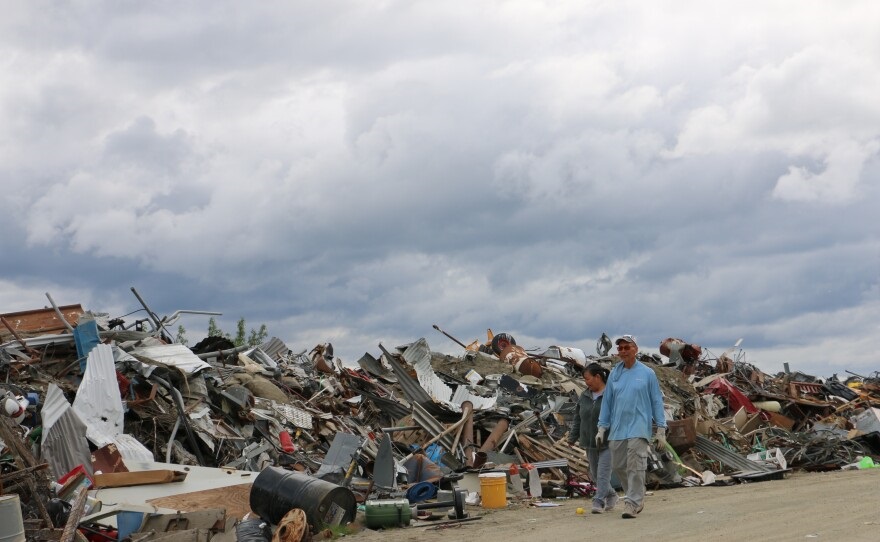
On a recent Saturday, they’re scavenging for beams to hold up a new house they’re building at the site. They have another project too. Just when an already challenging salmon season was kicking off a few weeks earlier on the Kuskokwim, the outboard motor on their boat failed. They ordered a replacement part through a local shop, but it was taking too long to arrive.
“We have a 40 Mercury, and we found exactly the same kind of motor, so we’re using that as spare parts,” Olinka said.
The 19-acre landfill occupies a high spot on the tundra just outside of town, next to the city’s sewage lagoon. In the summer, the combined aroma can go from underwhelming to overpowering with a shift in the wind.
What is thrown away in Bethel mostly stays in Bethel, and the landfill holds anything and everything you can think of plus some unique items. A vending machine and an airplane wing jut out of a berm of twisted wreckage. But where others see trash, Peterson and Olinka find treasure.
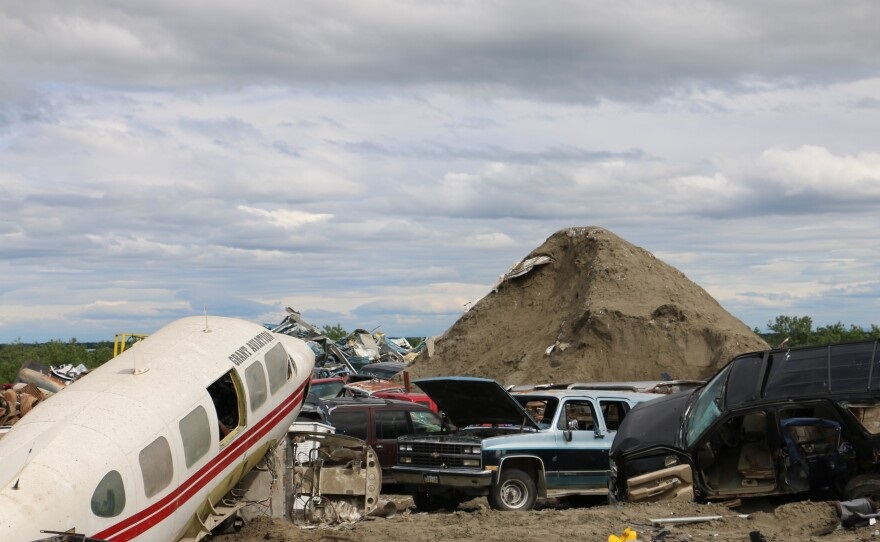
“All the way around is good,” Peterson said as Olinka chimed in. “We usually drive really slow and go all the way around and stop where we need to stop.”
Scavenging at the landfill is a way for residents to push back against the challenging economic reality of life in rural Alaska. On this day, each of the dozens of vehicles that creep slowly along the lane appear to be in search of something different, whether it be building materials, car parts, scrap metal, home decor, something to flip on Facebook, or simply a good time.
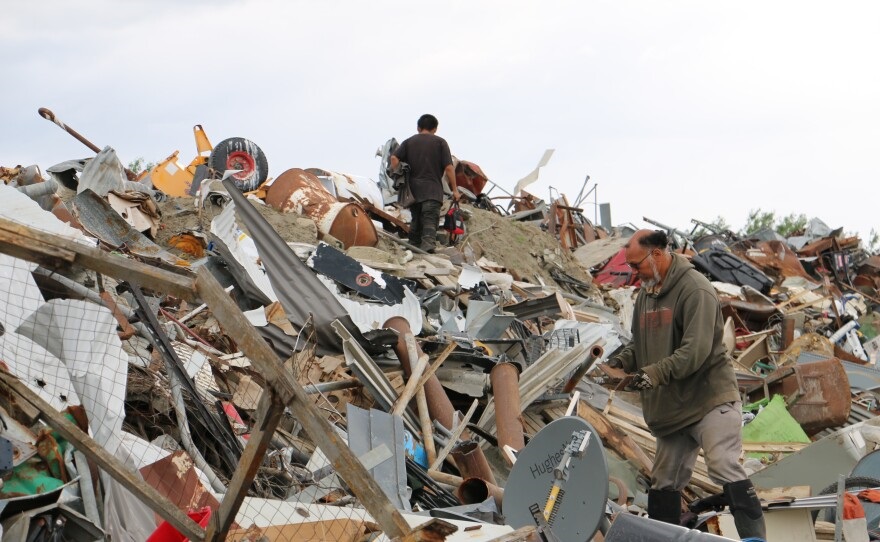
“Government scuttle”
At an intersection marked by washing machines, pallets, and several filthy mattresses, Tim Grifka finds a wheel for his van.
“There’s no tire man in town, so I grab me a rim off this vehicle,” Grifka said. “But I do pretty well. Scavenging scrap metal’s my thing.”
Grifka has been combing the landfill for brass and copper for the past decade. He squeezes what he can into 70-pound flat-rate boxes and mails them to an Anchorage recycling center to supplement his income. Occasionally he strikes the dump equivalent of gold.
“I seen the truck dumping in the fall season and I made $3,400 one day,” Grifka said. “And there’s other guys out here. I don’t know if we’re ravens or what we are, but we’re pretty much out here just for the scrap metal.”
Scrap metal isn’t the only treasure by any means. Grifka has also scored running vehicles, working power tools, wall tents discarded by the Alaska Department of Fish and Game, and other perfectly usable items that either legally can’t be resold outside of official auctions or haven’t been donated for various reasons.
“There’s a lot of government scuttle that they can’t … it’s not for resale,” Grifka said.
Another picker, John Michaels, remembers a time when the search for scuttle and items of value was more of a free-for-all and not limited to Saturdays only.
“Back in the day, it used to be daily. People would be able to come in and just salvage stuff. But people got hurt, you know, from rusty metal,” Michaels explained.
In 2016, the city moved to halt scavenging at the Bethel landfill altogether, calling it a liability and public safety risk. But public outcry was immediate and effective. Salvaging remained open six days a week until 2018, when the current Saturday-only rule took effect.
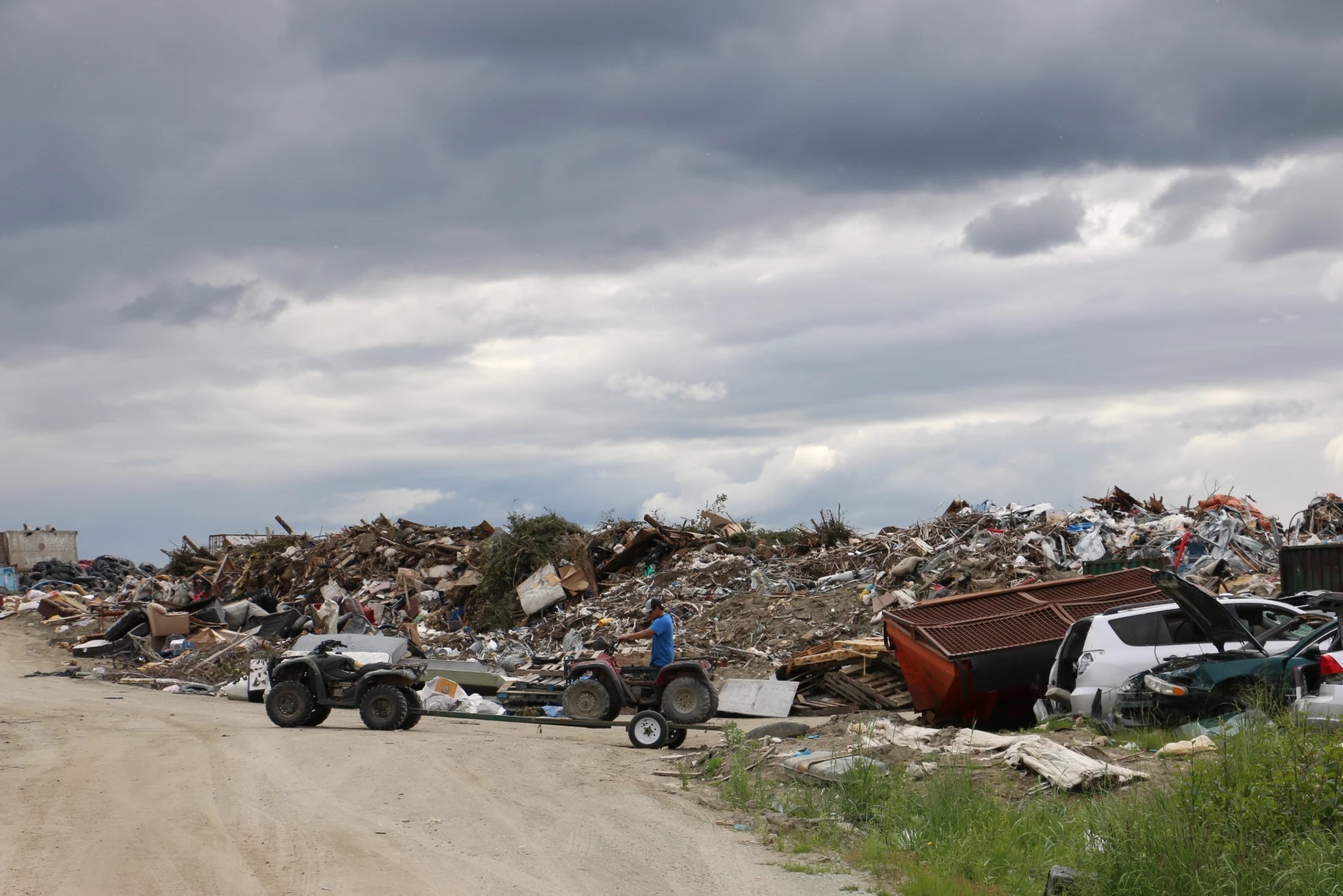
Michaels is here to dump a beat-up furnace towed behind his four-wheeler. He said that he wasn’t planning on grabbing anything, but within minutes of offloading he’s loading a junked four-wheeler to bring home and salvage the tires.
“Yeah, I try not to come out here too much. I’ll see something, I’ll want to try and fix it and get it up and running,” Michaels said with a laugh.
Just as Michaels waves goodbye and drives away, a truck pulls in to pick the area clean of buckets and plastic totes.
At the “Walmart of Bethel” there is something for everyone. But instead of adding to the junk pile, discarded things find new life every Saturday at the landfill.

Post a Comment